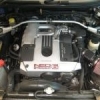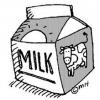Announcements
-
Similar Content
-
Latest Posts
-
Usually the lower mount has a thicker/wider side, see image of the right side of the lower shock mount. Don't see why a couple of washers wouldn't do the same job.
-
Counter opinon. Having both an OS gearset car and the getrag 6 speed, will take the 6 speed for the street all day long thanks. First gear on most gear sets are ASS, the bloody gear you spend heaps of time in on the street too. I run the 4.11 and it is fine at 110, (not sure who gets to do 120) I do find the gears a little short and doing a 3.89 setup. Anyway back to your question, running stock LSD rear, love it. Tried an S15 helical rear, it was aweful. In the process of doing a quaife front on advice as part of the 3.89. Seems like a good option. Let you know Car is 800awhp and mostly street.
-
I do the online time trials to get silver (1mil credits). Currently the EG at Tsukuba I got 1:14.015. Show me what you got! (Don't take it too seriously I only use the controller, CBF setting up G29).
-
So I’m looking for rb20det sensor or rb25de. Is this possible that ka24de/sr20 also could work? How much teeth is for small box sensor? 21? Does diameter size vary between these gearboxes? https://youtu.be/VPhkpdEH7Lg?si=uGF2tLuAM6Mb5LF2
-
Oh man I'm so excited for that one too! These still are very high on my fave cars list. What's our time trial for these? Kyoto driving Park?
-










Recommended Posts
Create an account or sign in to comment
You need to be a member in order to leave a comment
Create an account
Sign up for a new account in our community. It's easy!
Register a new accountSign in
Already have an account? Sign in here.
Sign In Now